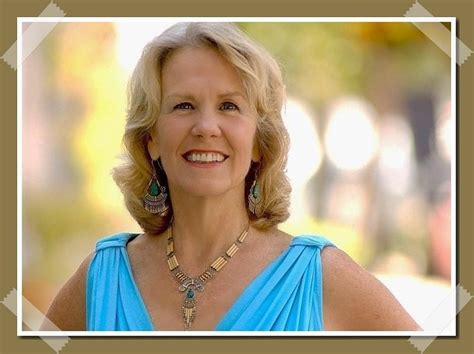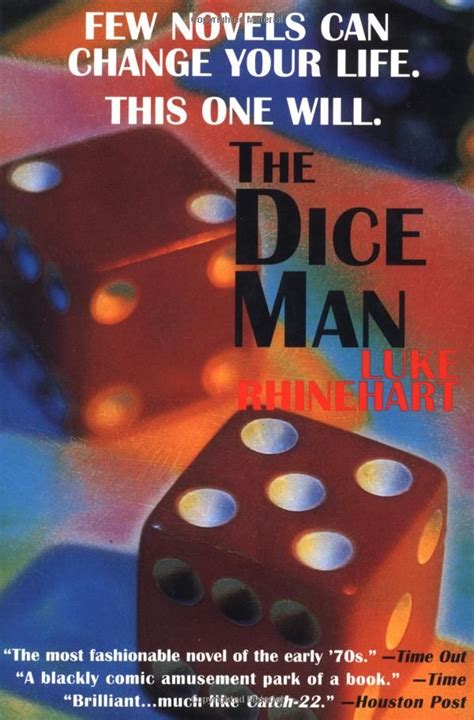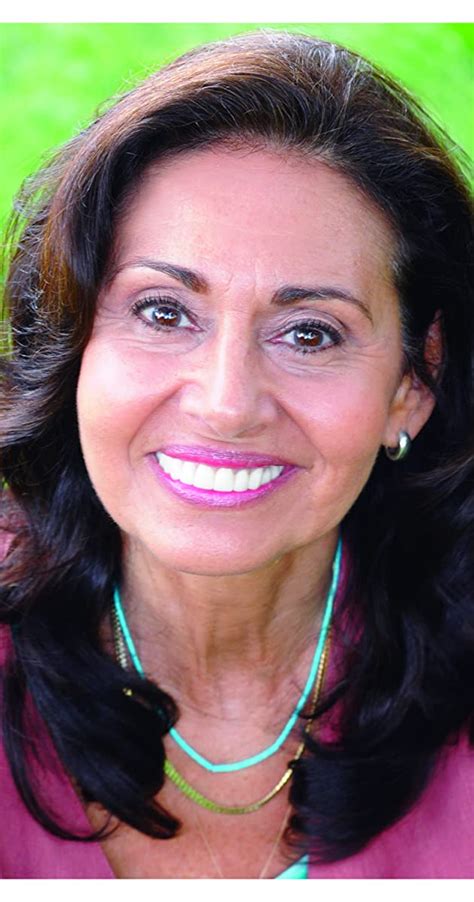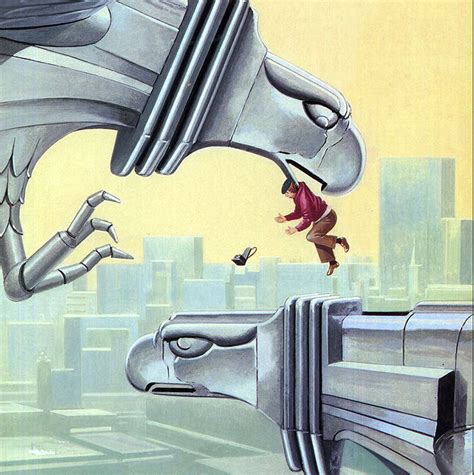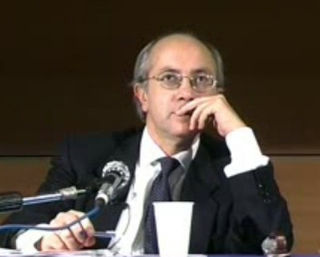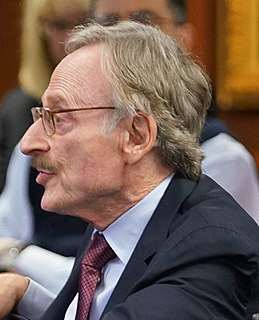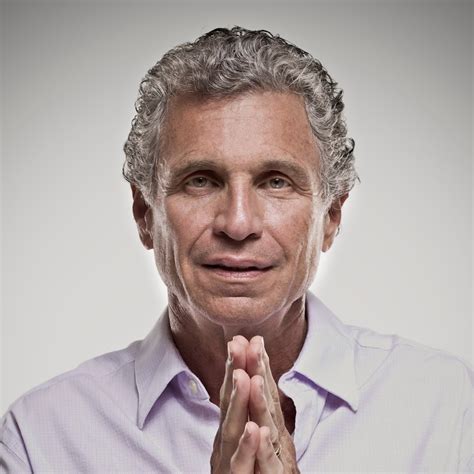Top 475 Crises Quotes & Sayings - Page 8
Explore popular Crises quotes.
Last updated on December 22, 2024.
The climate, financial and national security crises are all connected. They share the same cause: Our [the USA's] absurd dependency on foreign oil. As long as we need to spend billions of dollars each year to buy foreign oil from state-run oil companies in the Persian Gulf, our problems of a trade deficit, a budget deficit and a climate crisis will persist.
Each powerful player, or coalition of players, will make concessions in areas where it has relatively less at stake in exchange for other such players making reciprocal concessions in other areas where it has relatively more at stake. Such trades are collectively rational insofar as they get each of the powerful players more of what it wants. But such trades are also dangerous because the whole international rule-system will become incoherent and therefore vulnerable to crises that will continue to become increasingly severe.
There two other areas that are personally deeply important to me, that I hope the Homeland show can attend to in some way - one, being the refugee crisis. These are the most vulnerable people among us in the world. There are over 60 million refugees displaced by war, over 21 million that go to a third country. The numbers are climbing, and there are no legal options for these people. These are the victims of the real world's crises that the Homeland world reflects on, and almost takes a Polaroid of these days, versus a fictional tale of it.
Many flagship state universities have wonderful digital libraries that are accessed by people around the world. In future, if not current, budget crises, trustees, board members, and administrators may wonder why these state institutions - with an articulated primary clientele of students, faculty, and staff members and a secondary clientele of all citizens of the state - should be spending resources on a digital library that is used by many people beyond the primary and secondary service populations.
The ultimate cause of the October Crisis was the ideological embrace of Milton Friedman's warped but still dominant view that "the only social responsibility of business is to make a profit for its shareholders," and until that socially and economically counterproductive - and empirically, legally and ethically inaccurate - view is corrected, we will continue to have the increasing and more intense crises of global capitalism that we have seen recur with ever greater frequency over the past forty years. Sadly but clearly, the lessons have still not been learned.
When the United States stands up for human rights, by example at home and by effort abroad, we align ourselves with men and women around the world who struggle for the right to speak their minds, to choose their leaders, and to be treated with dignity and respect. We also strengthen our security and well being, because the abuse of human rights can feed many of the global dangers that we confront - from armed conflict and humanitarian crises, to corruption and the spread of ideologies that promote hatred and violence.
What we face in Canada are multiple overlapping crises. We have the climate crisis, which is screaming down on us - all of the predictions are coming true even faster than the scientists thought. We have the inequality crisis, where the Panama Papers are a great reminder that the one per cent have actually created their own economy. We still have the crisis of child poverty, which has never been dealt with despite decades of concerned words from politicians.
Don't be a perfectionist, because perfectionists often spend too much time on little differences at the margins at the expense of other big, important things. Be an effective imperfectionist. Solutions that broadly work well (e.g., how people should contact each other in the event of crises) are generally better than highly specialized solutions (e.g., how each person should contact each other in the event of every conceivable crisis).
Sometimes we need a personal crisis to reinforce in our minds what we really value and cherish. The scriptures are filled with examples of people facing crises before learning how to better serve God and others. Perhaps if you, too, search your hearts and courageously assess the priorities in your life, you may discover, as I did, that you need a better balance among your priorities.
The human drama is reaching its denouement. The great unveiling is approaching, a time when the power structures of the world begin to crumble and people of the heart sing out a new truth. Many voices are joining the chorus, many feet are walking the path, many minds are dreaming possibilities for a magnificent future. For beneath the crises that are looming at every level of civilization, the global heart is awakening, beating out the rhythm of a new and glorious dance, calling us to a better way of living.
I think the place maybe to watch with the greatest worry right at the moment, and to try to help the most, may be those parts of Africa around Somalia that are enduring a climate-caused and really record-breaking drought. It may be the greatest humanitarian crisis since the end of World War II. And of course, where humanitarian crises happen, so do political instability. This is the world that we're building and building fast. And it's the world that people are trying somehow to slow down. Trying very hard to bring down this fossil fuel machine before it does any more damage.
This separation of government from people, this widening of the gap, took place so gradually and so insensibly, each step disguised (perhaps not even intentionally) as a temporary emergency measure or associated with true patriotic allegiance or with real social purposes. And all the crises and reforms (real reforms, too) so occupied the people that they did not see the slow motion underneath, of the whole process of government growing remoter and remoter.
The world has so many lessons to teach you. I consider the world, our earth, to be like a school, and our life, the classrooms. Sometimes on our planet life school, the lessons often come dressed up as detours and road blocks and sometimes as full blown crises. And the secret I've learned to getting ahead is being open to the lessons.
In the midst of global crises such as pollution, wars and famine, kindness may be too easily dismissed as a 'soft' issue, or a luxury to be addressed after the urgent problems are solved. But kindness is the greatest need in all those areas - kindness toward the environment, toward other nations, toward the needs of people who are suffering. Until we reflect basic kindness in everything we do, our political gestures will be fleeting and fragile.
Perhaps peace is not, after all, something you work for, or 'fight for.' It is indeed 'fighting for peace' that starts all the wars. What, after all, are the pretexts of all these Cold War crises, but 'fighting for peace?' Peace is something you have or do not have. If you are yourself at peace, then there is at least some peace in the world. Then share your peace with everyone, and everyone will be at peace.
...our life crises tell us that we need to break free of beliefs that no longer serve our personal development.
These points at which we must choose to change or to stagnate are our greatest challenges.
Every new crossroads means we enter into a new cycle of change - whether it be adopting a new health regimen or a new spiritual practice.
And change inevitably means letting go of familiar people and places and moving on to another stage of life.
I mean, the people who got us into these crises - whether we're talking about the bankers or the hedge fund managers, or we're talking about the IMF - it's become pretty clear that the price to be paid for their illegal financial shenanigans, the burden is being placed on working class people, on the poor, on the elderly, on young people. It's become clear that neoliberal policies aren't just interested in "solving" an economic crisis, these are policies designed to enrich corporations and bankers and the rich at the expense of everybody else.
Tad Homer-Dixon is a rare kind of public intellectual, who combines real expertise with a commitment to communicate to the widest possible readership. In The Ingenuity Gap he wants us all to wake-up to the fearful possibility that our blithe trust in science and technology may be misplaced. Human ingenuity may not be capable of coping with two emerging crises of this century and the next: population growth and environmental despoliation. Read Homer Dixon's wake-up call and you will see the future very differently.
The world has got more democracies than ever, and human rights are high on almost every country's agenda. Still, corruption and oppression are far too common threats to the democratic society. And we have seen a dramatic increase, the last 10-15 years, of ethnical conflicts and humanitarian crises with human rights violations as important elements., but also more of corruption. Human rights are praised more than ever - and violated as much as ever.
To change man, the audience by which he judges himself must be changed. A man is defined by his audience: by the people, institutions, authors, magazines, movie heroes, philosophers by whom he pictures himself being cheered and booed. Major psychological disturbances, 'identity crises', are caused when an individual begins to change the audience for whom he plays: from parents to peers; from peers to the works of Albert Camus; from the Bible to Hugh Hefner.
The past year's natural disasters have highlighted the invaluable contributions of volunteers in our communities. They have volunteered their time, energy and skills to save lives and to rebuild communities. In this they joined countless people around the world who volunteer every day in response to 'silent crises'. These often unsung heroes understand all too well that poverty, disease and famine are just as deadly and destructive as earthquakes, hurricanes and tsunamis.
The most important thing that a company can do in the midst of this economic turmoil is to not lose sight of the long-term perspective. Don't confuse the short-term crises with the long-term trends. Amidst all of these short-term change are some fundamental structural transformations happening in the economy, and the best way to stay in business is to not allow the short-term distractions to cause you to ignore what is happening in the long term.
In America, we need to go forward in nationalizing several large corporations: I think that's possible; we nationalized General Motors; we nationalized several of the big banks, de facto; we nationalized Chrysler; we nationalized AIG. I think there will be more crises, and at some point, rather than being bailed out by the government, the public may keep the corporations it has to rescue.
The reason territorial monarchs failed time after time against maritime powers was not that absolutist, non-consensual governments were incapable of building great fleets in peace - quite the reverse - but that they were unable to fund them in the crises of war. Mainly this was because they were forced to divert resources from the fleet to their armies, to fight territorial rivals frequently financed by their maritime enemy from the profits of sea trade.
When my family moved from Ireland in the 70s, Britain was such a difficult place to be Irish. It was a decade of real social and economic upheaval in Britain. There were strikes, the three-day week, the oil crises, huge inflation, the winter of discontent and, what was it, four Prime Ministers? And relations between Britain and Ireland at that time were at an all-time low. I was born in the year of Bloody Sunday and of course the pub bombings happened in the mid-1970s.
The 'idea' for the poem, which may come as an image thrown against memory, as a sound of words that sets off a traveling of sound and meaning, as a curve of emotion (a form) plotted by certain crises of events or image or sound, or as a title which evokes a sense of inner relations; this is the first 'surfacing' of the poem. Then a period of stillness may follow.
The future will be less predictable, forecast rises will shrink, company lifetimes will shrink, new entrants will proliferate and it’s going to just get more unpredictable. If you thought financial crises came and went, just count on them – another economic collapse, it’s almost going to be like not news any more. But for startups this is great, because it’s a perpetual driver of disruption.
I had a very marginal understanding of what faith in God was growing up because, although I went to a Catholic school, without having parents who really were actively involved in faith there was no reinforcement of it. So, as a result of that I guess I just kind of thought that God was somebody that you put in a box and you put Him on a shelf and you called on him when you had crises.
In an age of interdependence, global citizenship - based on trust and sense of shared responsibility - is a crucial pillar of progress. At a time when more than one billion people are denied the very minimum requirements of human dignity, business cannot afford to be seen as the problem. Rather, it must work with governments and all other actors in society to mobilize global science, technology and knowledge to tackle the interlocking crises of hunger, disease, environmental degradation and conflict that are holding back the developing world.
No one wishes for crisis, but when crises come, they can call forth our best impulses, those of compassion, courage, creativity, and community. And if there are crimes and evils hidden in the dark places of our society and the darker places of our consciousnesses, all the better they come to the surface to be seen, understood, confronted, and healed. If our generation is called to bear a burden of that healing, it is a powerful calling and honor and one within our capability.
With apologies to the green movement, "sustainability" is a myth. History and archaeology show that societies are always moving to the edge of crisis, "falling forward" through growth, but then responding often successfully to the problems created. What we can hope for is that with a somewhat more controlled level of growth, and with longer-term preparations for change, we can keep responding to the inevitable smaller crises, as they arise, and continue to postpone until later and later the, perhaps ultimately inevitable, end of our civilization.
From the tiny birds of the air and from the fragile lilies of the field, we learn the same truth, which is so important for those who desire to live a life of simple faith: God takes care of His own. He knows our needs. He anticipates our crises. He is moved by our weaknesses. He stands ready to come to our rescue. And at just the right moment, He steps in and proves Himself as our faithful heavenly Father.
We all share a type of physical body that becomes ill or heals for the same reasons. We also share emotional and psychological crises common to the human experience. Everyone fears abandonment, loss and betrayal; anger is as toxic within a Jewish body as it is within a Christian, Muslim or Hindu body; and we are all drawn to love. When it comes to health of our spirits and our bodies, we have no difference.
In any age courage is the simple virtue needed for a human being to traverse the rocky road from infancy to maturity of personality. But in an age of anxiety, an age of herd morality and personal isolation, courage is a sine qua non. In periods when the mores of the society were more consistent guides, the individual was more firmly cushioned in his crises of development; but in times of transition like ours, the individual is thrown on his own at an earlier age and for a longer period.
This is the one international institution we have in which governments get together to work collectively for a common purpose. International crises, by definition, require international solutions. Peacekeeping is a response to conflict, is a response to situations in which often it is not the business of any one particular country to get into. It seems to me, therefore, that the world will for the foreseeable future need peacekeeping.
The IMF is a more complicated issue. I think there is a broad sentiment among both the left and the right that the IMF may be doing more harm than good. On the right, there's the view that it represents a form of corporate welfare that is counter to the IMF's own ideology of markets. But anybody who has watched government from the inside recognizes that governments need institutions, need ways to respond to crises. If the IMF weren't there, it would probably be reinvented. So the issue is fundamentally reform.
One of the ongoing crises in America is institutional racism. We have a very broken criminal justice system. We live in a country where there are more people in jail than any other country on Earth. There are some 2.2 million people currently incarcerated and they are disproportionally African American and Hispanic. Unarmed African Americans have been abused and sometimes killed while in police custody. Clearly these are issues that must be dealt with and changed.
It is so important not to let ourselves off the hook or to become apathetic or cynical by telling ourselves that nothing works or makes a difference. Every day, light your small candle.... The inaction and actions of many human beings over a long time contributed to the crises our children face, and it is the action and struggle of many human beings over time that will solve them-with God's help. So every day, light your small candle.
Over the years I have learned that when I need answers to deal with crises, people, and issues, I must go to God. God will help us in everything we do if we stay in tune and if we will call on him. We must each plan our future with him in our homes, our families, and our relationships with others. If we make him our senior partner, our lives can be successful.
Now, in economic crises times, the kind of things you're looking at is it's generally harder to get capital, revenue growth may be more, revenue lines may be unstable or growth may be less easy to predict that you're going to get to. And so what you do is you take a certain conservative approach of when, as all entrepreneurs should do, you plan for both good luck and bad luck, you put extra time on, "Okay, if I have bad luck, what do I do about that?"
We humans are born egocentric. The sky thunders and children believe that God is mad at them for something they've done - parents divorce and children believe it's their fault for not being good enough. Growing up means putting aside our egocentricity for truth. Still, some people cling to this childish mind-set. As painful as their self-flagellation may be, they'd rather believe their crises are their fault so they can believe they have control. In doing so they make fools and false gods of themselves.
There has always been a longing in the human heart for a more just, free, loving and creative society. But it was never before possible to fulfill these aspirations, because we had neither the evolutionary drivers and global crises to force us to change, nor did we have the scientific and technological powers that can free us from the limitations of scarcity, poverty, disease, and ignorance. This is the time of awakening for the social potential movement.
Ninety-nine per cent of traditional English literature concerns people who never have to worry about money at all. We always seem to be watching or reading about emotional crises among folk who live in a world of great fortune both in matters of luck and money; stories and fantasies about rock stars and film stars, sporting millionaires and models; jet-setting members of the aristocracy and international financiers.
If the general attitude of Canadians toward their mighty neighbor to the south could be distilled into a single phrase, that phrase would probably be "Oh, shut up." The Americans talked too much, mainly about themselves. Their torrid love affair with their own history and legend exceeded-painfully-the quasi-British Canadian idea of modesty and self-restraint. ... They were forever busting their buttons in spasms of insufferable yahoo pride or all too publicly agonizing over their crises.
Being raised in an unstable household makes you understand that the world doesn't exist to accommodate you, which... is something a lot of people struggle to understand well into their adulthood. It makes you realize how quickly a situation can shift, how danger really is everywhere. But crises when the occur, do not catch you off guard; you have never believed you lived under a shelter of some essential benevolence. And an unstable childhood makes you appreciate calmness and not crave excitement.
At 17, the smallest crises took on tremendous proportions; someone else's thoughts could take root in the loam of your own mind; having someone accept you was as vital as oxygen. Adults, light years away from this, rolled their eyes and smirked and said, 'This too shall pass' - as if adolescence was a disease like chicken pox, something everyone recalled as a milk nuisance, completely forgetting how painful it had been at the time.
Careless of waste, wallowing in refuse, exterminating the enemies . . . despising age, denying human natural history, fabricating pseudotraditions, swamped in the repeated personal crises of the aging preadolescent; all are familiar images of American society. They are signs of private nightmares of incoherence and disorder in broken climaxes where technologies in pursuit of mastery create ever-worsening problems - private nightmares expanded to a social level.
The fact is that philosophy has been a decisive source of inspiration in all the great crises that Europe has faced. It has been so in the time that preceded the fall of the Roman Empire, when Augustine of Hippo delineated the features of a new spiritual civilization; in the age of religious wars, when Descartes and Hobbes established the principles of modern science and politics; and at the turn of the French Revolution, interpreted by Kant and Hegel as an event destined to change the history of the world.
I used to believe, although I don't now, that growing and growing up are analogous, that both are inevitable and uncontrollable processes. Now it seems to me that growing up is governed by the will, that one can choose to become an adult, but only at given moments. These moments come along fairly infrequently -during crises in relationships, for example, or when one has been given the chance to start afresh somewhere- and one can ignore them or seize them.
Anyone interested in the past, present, or future of banking and financial crises should read The Bankers' New Clothes. Admati and Hellwig provide a forceful and accessible analysis of the recent financial crisis and offer proposals to prevent future financial failures. While controversial, these proposals--whether you agree or disagree with them--will force you to think through the problems and solutions.
Everyone, you know, during crises times, is much more focused on, okay, how do we get the boat completely seaworthy, sailing along well, and everything going well? And so as long as you're communicating how the general strategy of the company and how the work they can do to add to that and to make that more successful and the thing that they can contribute to that, that is generally very motivating for employees in crisis times.
If you view everything through the lens of fear, then you tend to stay in retreat mode. You can just as easily see a crises or problem as a challenge, an opportunity to prove your mettle, the chance to strengthen and toughen yourself, or a call to collective action. By seeing it as a challenge, you will have converted this negative into a positive purely by a mental process that will result in positive action as well.
The soul, in its longing to grow, will push us toward crisis points, bringing about a situation that will force us to leave behind the old toys and the worn-out ways of operating. Our soul brings us these crises to remind us that we don’t have to remain stuck in the land of the hunters and the hunted. We are called to draw ourselves up to our full height and confidence, even when terrified at the prospect of the unknown.
People are now starting to explain the Cold War. Even in the crises at that time the survival of millions of people was at stake. And we (the USA) had to threaten the other super power with retaliation to prevent it from doing something to us. Today we live in a world in which a lot of things are in flux. That creates a lot of fear. But it is also a time of great opportunity. And I would call on today's statesmen to not allow their thinking to be directed by fear.










